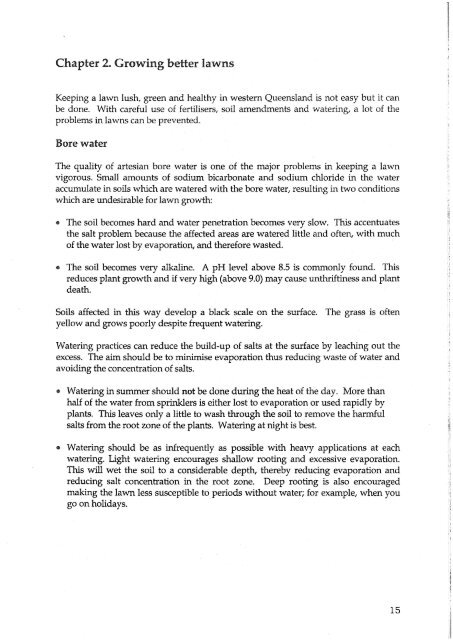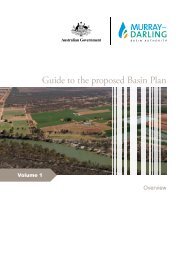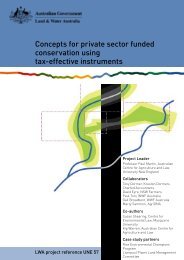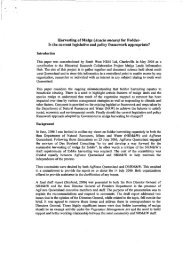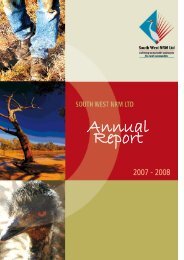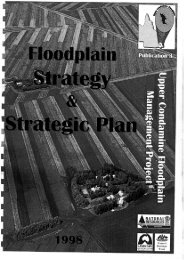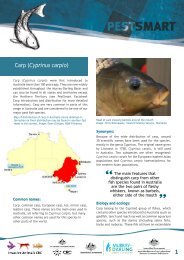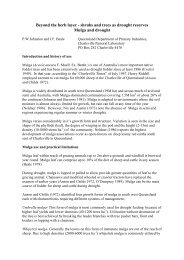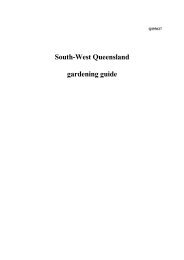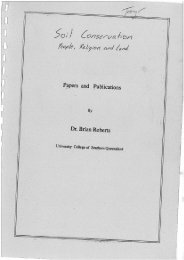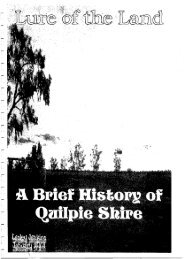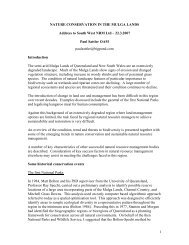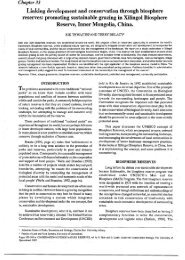western-queensland-gardening-guide.pdf - South West NRM
western-queensland-gardening-guide.pdf - South West NRM
western-queensland-gardening-guide.pdf - South West NRM
Create successful ePaper yourself
Turn your PDF publications into a flip-book with our unique Google optimized e-Paper software.
Chapter 2. Growing better lawns<br />
Keeping a lawn lush, green and healthy in <strong>western</strong> Queensland is not easy but it can<br />
be done. With careful use of fertilisers, soil amendments and watering, a lot of the<br />
problems in lawns can be prevented.<br />
Bore water<br />
The quality of artesian bore water is one of the major problems in keeping a lawn<br />
vigorous. Small amounts of sodium bicarbonate and sodium chloride in the water<br />
accumulate in soils which are watered with the bore water, resulting in two conditions<br />
which are undesirable for lawn growth:<br />
The soil becomes hard and water penetration becomes very slow. This accentuates<br />
the salt problem because the affected areas are watered little and often, with much<br />
of the water lost by evaporation, and therefore wasted.<br />
The soil becomes very alkaline. A pH level above 8.5 is commonly found. This<br />
reduces plant growth and if very high (above 9.0) may cause unthriftiness and plant<br />
death.<br />
Soils affected in this way develop a black scale on the surface. The grass is often<br />
yellow and grows poorly despite frequent watering.<br />
Watering practices can reduce the build-up of salts at the surface by leaching out the<br />
excess. The aim should be to minimise evaporation thus reducing waste of water and<br />
avoiding the concentration of salts.<br />
Watering in summer should not be done during the heat of the day. More than<br />
half of the water from sprinklers is either lost to evaporation or used rapidly by<br />
plants. This leaves only a little to wash through the soil to remove the harmful<br />
salts from the root zone of the plants. Watering at night is best.<br />
Watering should be as infrequently as possible with heavy applications at each<br />
watering. Light watering encourages shallow rooting and excessive evaporation.<br />
This will wet the soil to a considerable depth, thereby reducing evaporation and<br />
reducing salt concentration in the root zone. Deep rooting is also encouraged<br />
making the lawn less susceptible to periods without water; for example, when you<br />
go on holidays.


